International Law and Immigration
ILS News – June 2025
Message from the Chair
Message from the Chair

This month I joined ILS members from CLA and LACBA on a tour of NASA’s Jet Propulsion Laboratory. Many of us on the tour expressed an interest in practicing space law had we known that it was an option. Today, what happens in low and high Earth orbits (a/k/a outer space), increasingly affects our lives on Earth. Things we take for granted, like satellites that power the internet and cell phones, space tourism or exploration to space warfare. Perhaps in the not-so-distant future no matter what kind of law you practice you will have to have a general understanding of space law as the economy continues to expand with space components. Lawyers are going to need to understand the issues that arise in outer space bringing the final frontier of deep space a little bit closer.
Speaking of celestial events, the world held its collective breath as a papal conclave was held in early May to elect a new Pope. No news commenter expected or predicted it would be an American Pope. The Pope is head the Holy See which operates in the Vatican City and is the central governing body of the Catholic Church. It is a sovereign entity with diplomatic relations, capable of entering treaties, sending and receiving diplomatic representatives and having its own legal personality recognized under international law. See our article this month from James C. Roberts III reporting from Milan on how the first American Pope is being received. The second article reports on Cardinal Pietro Parolin, Vatican Secretary of State, speaking about how the Catholic Social Doctrine can heal global divides.
We continue our webinar series on immigration; this month is part one of a two-part series titled Employment Immigration Changes Under the Trump Administration.
And finally, do not miss our international conference hosted by the Milan Bar. Registration details are below. We look forward to having you join us.
Theresa Leets
Chair, International Law and Immigration Section
California Lawyers Association
Webinars
Employment Immigration Changes Under the Trump Administration – Part 1
June 4, 2025
Noon – 1:00 PM | REGISTER HERE
1 Hour MCLE | Legal Specialization in Immigration & Nationality Law Credit
As global talent mobility, foreign investment, and workforce demand continue to shape the U.S. economy, staying current on employment-based and investor immigration pathways has never been more essential.
This timely two-part webinar series will examine the evolving landscape of employment-based visas, investor programs, and business immigration strategies considering new regulations, adjudication trends, and policy shifts under the current administration.
Part 1 of the series will be a discussion of key updates and emerging trends in nonimmigrant visas and will include:
- The January 2025 modernization of H-1B Final Rule and its increased oversight on entrepreneurs
- Recent H-1B RFE trends including biometrics, prevailing wage issues, and site visits.
- Heightened scrutiny of TN visa applicants at the border amid increased enforcement efforts
- E- Treaty Investor Visas – eligibility, renewals and country considerations
- Business travel considerations for nonimmigrants– Are cells phone and laptops subject to searches at ports of entry?
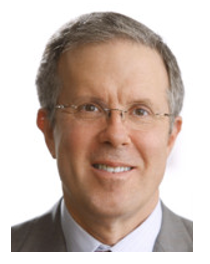
Carl Shusterman
Carl Shusterman | LinkedIn
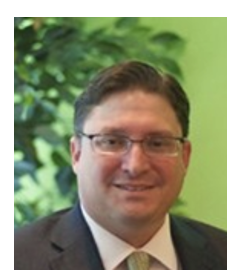
Kevin Levine
Kevin Levine | LinkedIn

Josh M. Surowitz
Joshua Surowitz | LinkedIn
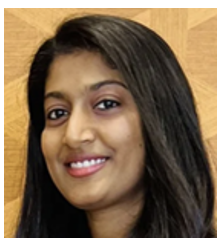
Radhika Balaji
Radhika Balaji | LinkedIn
Employment Immigration Changes Under the Trump Administration – Part 2
July 9, 2025
Noon – 1:00 PM | REGISTER HERE
1 Hour MCLE | Legal Specialization in Immigration & Nationality Law Credit
As global talent mobility, foreign investment, and workforce demand continue to shape the U.S. economy, staying current on employment-based and investor immigration pathways has never been more essential.
This timely two-part webinar series will examine the evolving landscape of employment-based visas, investor programs, and business immigration strategies considering new regulations, adjudication trends, and policy shifts under the current administration.
Part 2 will focus on both legal insights and practical guidance on securing and managing U.S. immigration options for businesses and highly skilled professionals seeking permanent residency. The discussion will include:
- Mandatory interviews for employment based green cards
- Department of Labor Audits, investigations, and employer best practices to balance recruitment strategies with immigration compliance
- Visa bulletin movement, retrogression concerns and alternative pathways for multinational executives, professionals, and skilled workers
- Evaluation of employment history during citizenship application process
- The “Trump Gold Card” – Can investors effectively buy US Citizenship?

Carl Shusterman
Carl Shusterman | LinkedIn

Kevin Levine
Kevin Levine | LinkedIn

Josh M. Surowitz
Joshua Surowitz | LinkedIn

Radhika Balaji
Radhika Balaji | LinkedIn
Around the World
David Madeo shares photos from his travel adventure through Prague, Czech Republic, Warsaw, Poland and Budapest, Hungary.
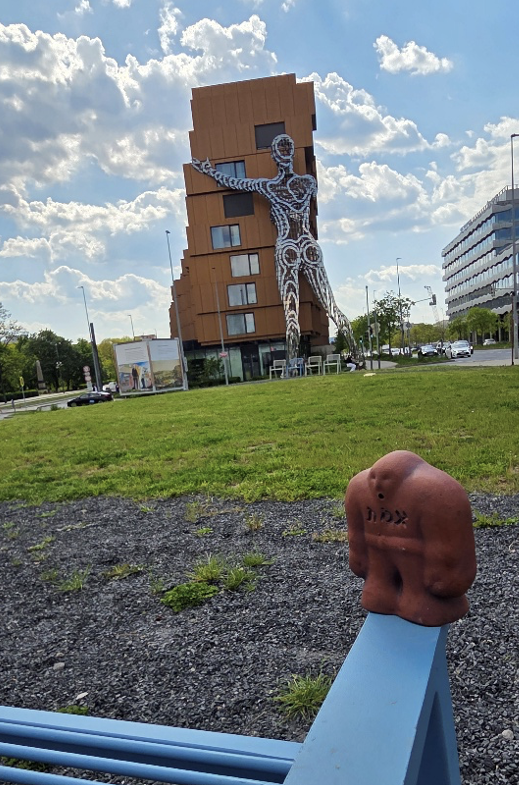
Lilith sculpture holding up the building in Prague
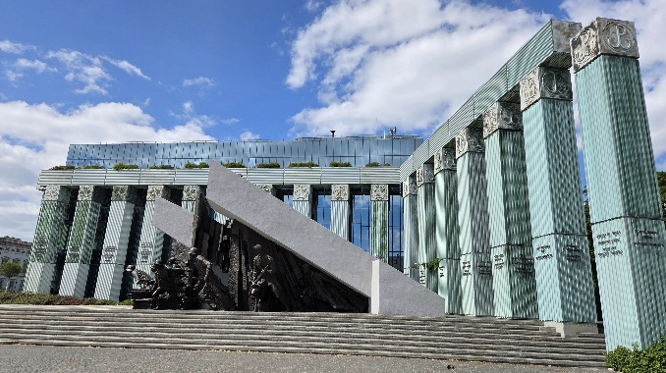
Supreme Court, Warsaw
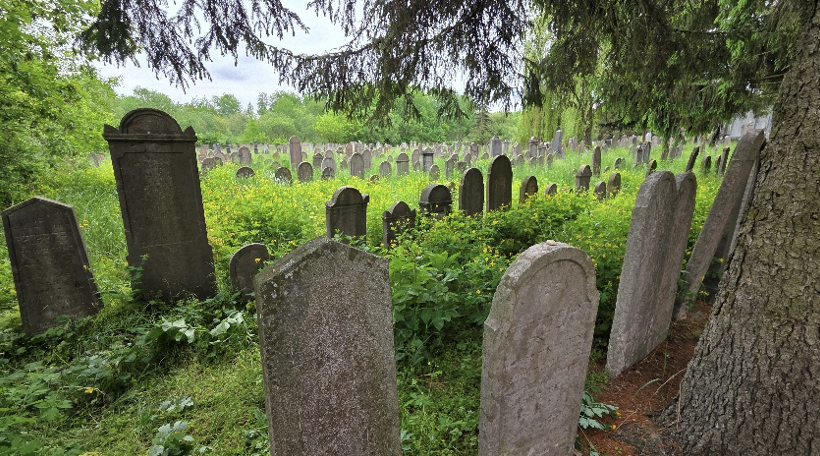
Jewish cemetery in Balassagyarmat, Hungary
Past Events
NASA Jet Propulsion Laboratory (JPL) Tour
On May 19, 2025, The Los Angeles County Bar Association (LACBA) International Law Section and the California Lawyer Association’s (CLA) International Law and Immigration Section co-sponsored a half-day tour at NASA’s Jet Propulsion Laboratory (JPL) in La Canada.
The tour included a multimedia presentation on JPL entitled “Journey to the Planets and Beyond,” which provided an overview of JPL’s activities and accomplishments, a visit to the von Karman Visitor Center, the Space Flight Operations Facility, and the Spacecraft Assembly Facility.
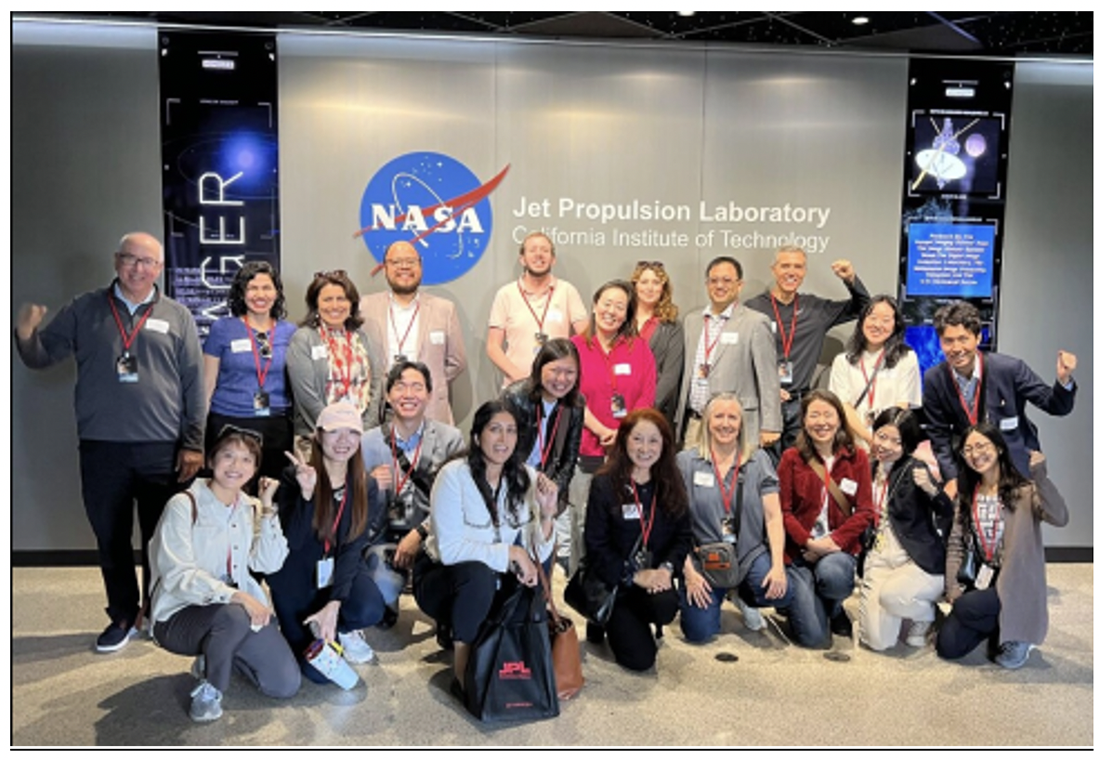
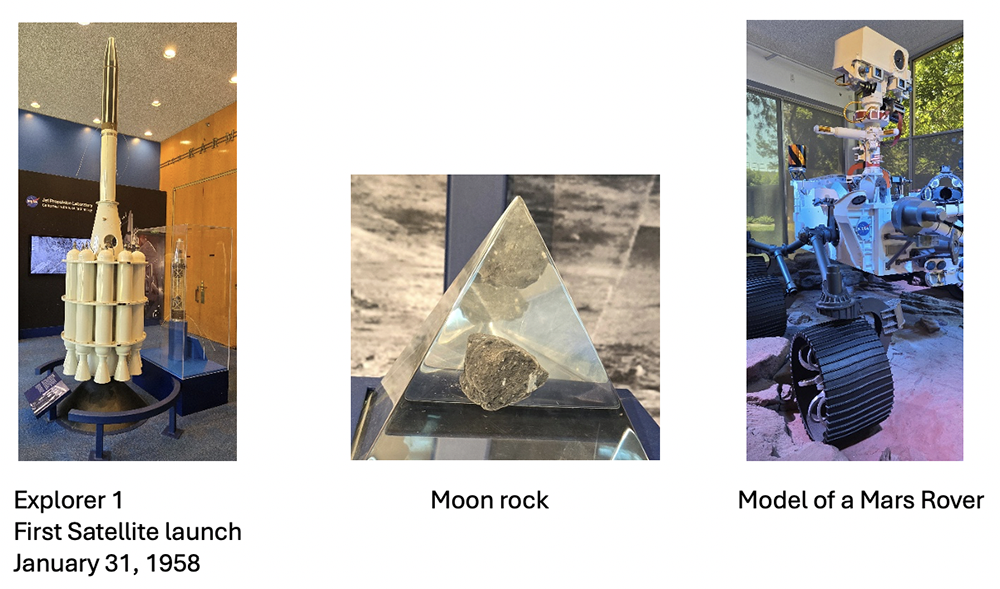
Conference
Annual Meeting | September 11-13, 2025 | Universal City, CA
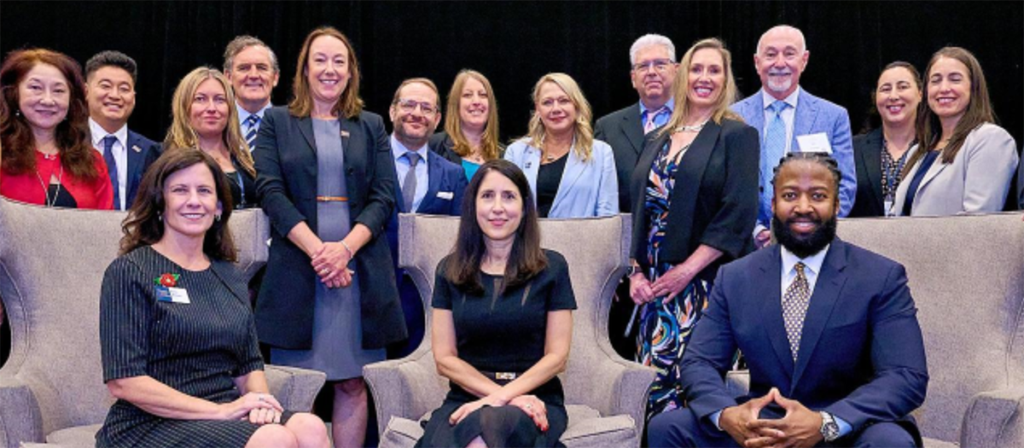
Experience the power of community at the 2025 Annual Meeting! Join us for the premier legal event of the year—the California Lawyers Association 2025 Annual Meeting! Taking place in Universal City, this three-day gathering will bring together legal professionals from across the state for an unforgettable experience filled with insightful discussions, inspiring keynote speakers, and unparalleled networking opportunities. Whether you’re looking to expand your legal knowledge, earn MCLE credit, or connect with colleagues in a dynamic setting, the Annual Meeting is where the legal community comes together to learn, engage, and grow.
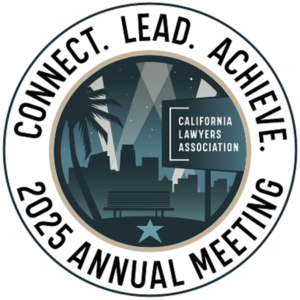
International Conference
You’re Invited to the CLA/Milan Bar International Conference!
October 15 – 18 in Milan, Italy
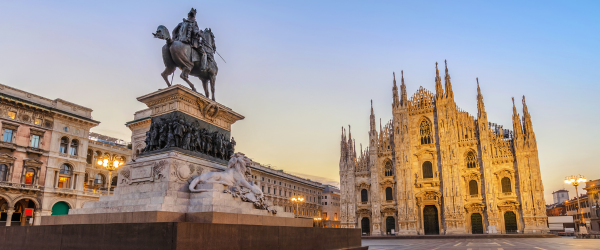
Join us for an unforgettable experience in Milan!
- Earn MCLE credits while participating in a series of thought-proviking academic sessions and networking opportunities.
- Indulge in exquisite Italian cuisine and world-renowned wines.
- Explore Milan’s iconic museums, art galleries, and historic landmarks, including Lake Como.

Article
A Brief Look at the New Pope and the Old Vatican
By James C. Roberts III
Let’s take a break from legal matters and look at a rather profound, an uncommon, event: the election of a new Pope. This even also gives us a chance to explore, briefly, the nation-state that the Pope will lead.
In Milan where I spend much of each year, the election of Pope Leone the 14th has been so electrifying that the topic has almost replaced the nearly ubiquitous topic, Seria A football (“soccer” to Americans). Many in my Milanese neighborhood seem to have anointed me as their resident “Yank,” which means that they must talk with me about Pope Bob” as they jokingly call him to me. These are neighbors, colleagues, friends, baristas, waiters, and even the shoe repair guy.
We should clarify his name. The English translation, “Leo,” just doesn’t cut it here. To Italians, he is “Leone,” i.e., “The Lion.” This they like about the “American” Pope: he will act like a lion. They also like that he was born in the US but spent much of his career in Peru, as well as in Rome itself, first as a graduate student and later, in managing certain Vatican matters. The Milanese who have explained (in time-consuming detail), argue that his life experiences amount to a geographic advantage over the other presumed candidates: experience as a priest, as a cardinal and as the leader of an important order, across three continents.
His decades long involvement as a priest in the Order of Saint Augustine (found in the 13th century), and the fact that he is the first Pope from this Order, also played a significant role in his selection, something that many Americans do not understand. The Order highly values learning and science and, toward that end, maintains important libraries. The mendicant priests of the Order follow principles of community, listening, giving counsel and sharing, as embodied in their constitution:
The activity of our journey is shaped by Augustine’s own experience and counsel, and is characterized by three essential elements: the constant search for God by means of a deep interior life; the practical love of neighbor; and the constant pursuit of truth.
These principles, together with his pastoral experience in Peru, as well as his several graduate degrees, have created expectations that he will take a reasoned approach based on building community by listening and by sharing. The Order’s dedication to learning should also contribute to a better understanding of the importance of science and other more “secular” worlds. Lest you think that this comes from reading papal tea leaves, The Lion said as much himself when explaining his choice of the name:
[. . .] There are different reasons for [choosing this name] this, but mainly because Pope Leo XIII in his historic Encyclical Rerum Novarum addressed the social question in the context of the first great industrial revolution. In our own day, the Church offers to everyone the treasury of her social teaching in response to another industrial revolution and to developments in the field of artificial intelligence that pose new challenges for the defense of human dignity, justice and labor.
The more reasoned of explanations also point out that he most likely represents the rising of the “new guard,” of cardinals selected by Pope Francis. They are younger than the “old guard.” They come from regions outside of Italy, in particular, and Western Europe, in general—usually from the poorer countries where pastoral leadership counts for more than doctrinaire and ideological stances in the culture wars. They tend to have more university and graduate degrees, often in non-theological topics (his undergraduate degree was in mathematics). Thus, they tend to be less conservative (in a theological sense) than the ”old guard,” concentrating less on dictating what the life of a proper Catholic must be and, in the pastoral tradition, guiding Catholics to make the right choices—what The Lion himself said (above) was the Church’s “social teaching.” Of course, this might be wishful thinking, as change of any sort moves at a glacial pace in the Church. Yes, there is an obvious contradiction between the expectations arising from the name and the support of the pastoral approach reinvigorated by Pope Francis and that will likely be the path of this Pope.
The Pope As Sovereign
It is obvious that The Lion serves as the spiritual leader of some 1.4 billion Catholics around the world; this alone gives him a voice in world matters, but his influence also comes from his role as the head of a sovereign nation, which is known variously as “Vatican City,” the “Vatican City State” or the “City of the Vatican.” Yes, the Vatican is internationally recognized as a nation—separate and apart from being the seat of the Catholic religion. Ecclesiastical matters are governed by “The Holy See,” which is often conflated with the Vatican City. As with the city-state itself, The Lion also sits at head of the Holy See. In this dual capacity The Lion will direct foreign policy, which is implemented by Vatican diplomats to many countries around the world.
A Small Footprint (and Other Facts)
Given The Vatican City’s influence in relation to its size, it could be said that the place “punches above its weight.” By geographic and population size, the Vatican City is the smallest internationally recognized state. It is roughly 0.19 square miles, or about 120 acres, of which about half is gardens (and including, to the delight of The Lion, a tennis court). The “territory” of the Vatican City is so little that you could fit about 1,150 of them in San Francisco, or forty-two of them in Santa Monica.
Here are a few other interesting facts about the place:
- Its ATMs provide instructions in Latin.
- There are around 620 citizens, of which half reside outside the country, largely in diplomatic missions or in Rome.
- Ten cardinals live in the Vatican City and the other 55 (or so) live around the world.
- As of the end of 2024, just under 900 people resided in the Vatican City.
- About 104 Swiss Guards—the brightly uniformed bodyguards for the Pope—reside there.
- The Vatican City uses Euros, with the face of the current Pope on each coin, which often causes a money shortage because of ardent collectors, especially in the first year of a new Pope.
- The Holy See maintains diplomatic relations with more than 180 countries (which is more than the diplomatic relations of China). About ninety of those countries have accredited diplomats, most of them living in Rome. Most of the ambassadors of such countries are also ambassadors to Italy.
- No one has pets or, more precisely perhaps, no one is supposed to have pets.
- The Vatican Observatory, founded in the 1500s, actively contributes to astronomy, largely through partnerships with various universities, e.g., the University of Arizona and University of California—Berkeley.
- There are eight soccer teams in The Vatican City that compete for the national championship.
- Assuming average walking speed, it would take about thirteen minutes to walk across the Vatican grounds and a bit over thirty-eight minutes to walk the perimeter.
- The dress code prohibits wearing shorts or skirts above the knee, sleeveless tops, and low-cut shirts and knees and upper arms must be covered. This applies to men and women.
There, in fact, some legal possibilities here, especially in light of The Lion’s apparent awareness of the modern world of technology—in particular, artificial intelligence. The Vatican City welcomes proposals for initiatives. For example, decades ago, our firm engaged in negotiations for digital rights to certain Vatican artworks and artifacts. There is no reason not to approach the Vatican on AI matters in the coming years, or even licenses for artworks and artifacts in their vast collections. One never knows.
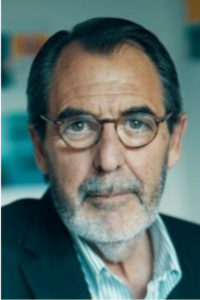
James co-founded the Global Capital Law Group and its affiliate, the Global Capital Strategic Group and manages the international, technology and venture practice on such topics as mergers & acquisitions, strategic alliances, joint ventures, licensing, intellectual property, international markets and disruptive tech such as artificial intelligence and Big Data in the US, Europe and Southeast Asia. He received his JD from the University of Chicago, his MA from Stanford University and his BS from the University of California—Berkeley. He splits his time between California and Milan, Italy.
Cardinal Parolin: Catholic Social Doctrine Can Heal Global Divides
By Linda Bordoni[1]
In an address calling for moral clarity and unified action in the face of global division, Cardinal Pietro Parolin told participants at the Centesimus Annus Pro Pontifice Foundation’s international conference on Friday that Catholic Social Doctrine offers a vital framework to strengthen global governance and heal deepening polarizations.
The theme of the conference, “Overcoming Polarizations and Rebuilding Global Governance: The Ethical Foundations,” provided the backbone of the Vatican Secretary of State’s discourse on the role of the Church’s social teaching in fostering justice, dialogue, and unity in an increasingly fractured world.
“We stand at a crossroads,” Cardinal Parolin said, “While global challenges such as climate change, inequality, and migration require greater cooperation, we often witness mistrust and fragmentation.”
Calling Catholic Social Teaching “a dynamic tradition” rather than a rigid ideology, the Cardinal pointed to its grounding in the Gospel, Church teaching, and human reason.
Its core principles – human dignity, the common good, solidarity, subsidiarity, and care for creation – offer, he said, a universal moral compass for addressing contemporary crises.
Rethinking global governance
Cardinal Parolin pointed to a crisis of legitimacy in current global governance structures, describing widespread perceptions that institutions are either overly intrusive or insufficiently effective.
He highlighted three fundamental contributions that Catholic Social Doctrine can make: “Human dignity” as the foundation of governance; the “common good” as its goal; “Balancing subsidiarity and solidarity” to empower local communities while fostering global cooperation.
Human dignity, he said, is a principle that “challenges systems that reduce people to economic units or political pawns. (…) It calls for policies that prioritize the vulnerable – the refugee, the elderly, the unborn -over profit or power.”
The common good, he continued, urges us to move beyond utilitarianism or individualism, advocating instead for cooperation over competition. “Debt relief should not be seen as charity, but as a shared investment in global stability.”
Balancing subsidiarity and solidarity, he explained, would allow for governance structures that are neither authoritarian nor paralyzed by fragmentation. “No nation is an island,” he said, “Subsidiarity without solidarity can neglect the marginalized, just as solidarity without subsidiarity can ignore local agency.”
Healing through dialogue and encounter
Turning to the theme of polarization, Cardinal Parolin described how ideological rifts, intensified by digital media, threaten trust and decision-making.
Thus, he continued, truth must be pursued through dialogue and the fostering of a “culture of encounter” where listening and humility guide debate.
Solidarity must also work as a bridge across global divides, he said, and the care for creation must become a universal concern as environmental crises, he noted, affect all nations regardless of ideology.
“Climate change doesn’t care about borders,” he said. “It gives us an opportunity to transcend divisions and collaborate for our shared home.”
Building a civilization of love
In closing, Cardinal Parolin reaffirmed the enduring relevance of Catholic Social Doctrine in guiding efforts to renew political and economic systems.
“Global governance is not just about systems—it’s about building a civilization of love,” he said. “Polarization is not inevitable. It can be overcome through truth, solidarity, and shared purpose.”
Echoing the words of Pope Leo XIII, he concluded by urging participants to build “bridges through dialogue and encounter,” reminding them that unity does not mean uniformity, and that justice is rooted not in vengeance, but in peace.
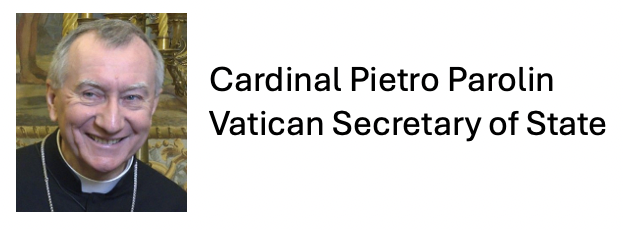
[1] Vatican News 5/17/25 https://www.vaticannews.va/en/vatican-city/news/2025-05/cardinal-parolin-conference-centesimus-annus-catholic-social-doc.html
